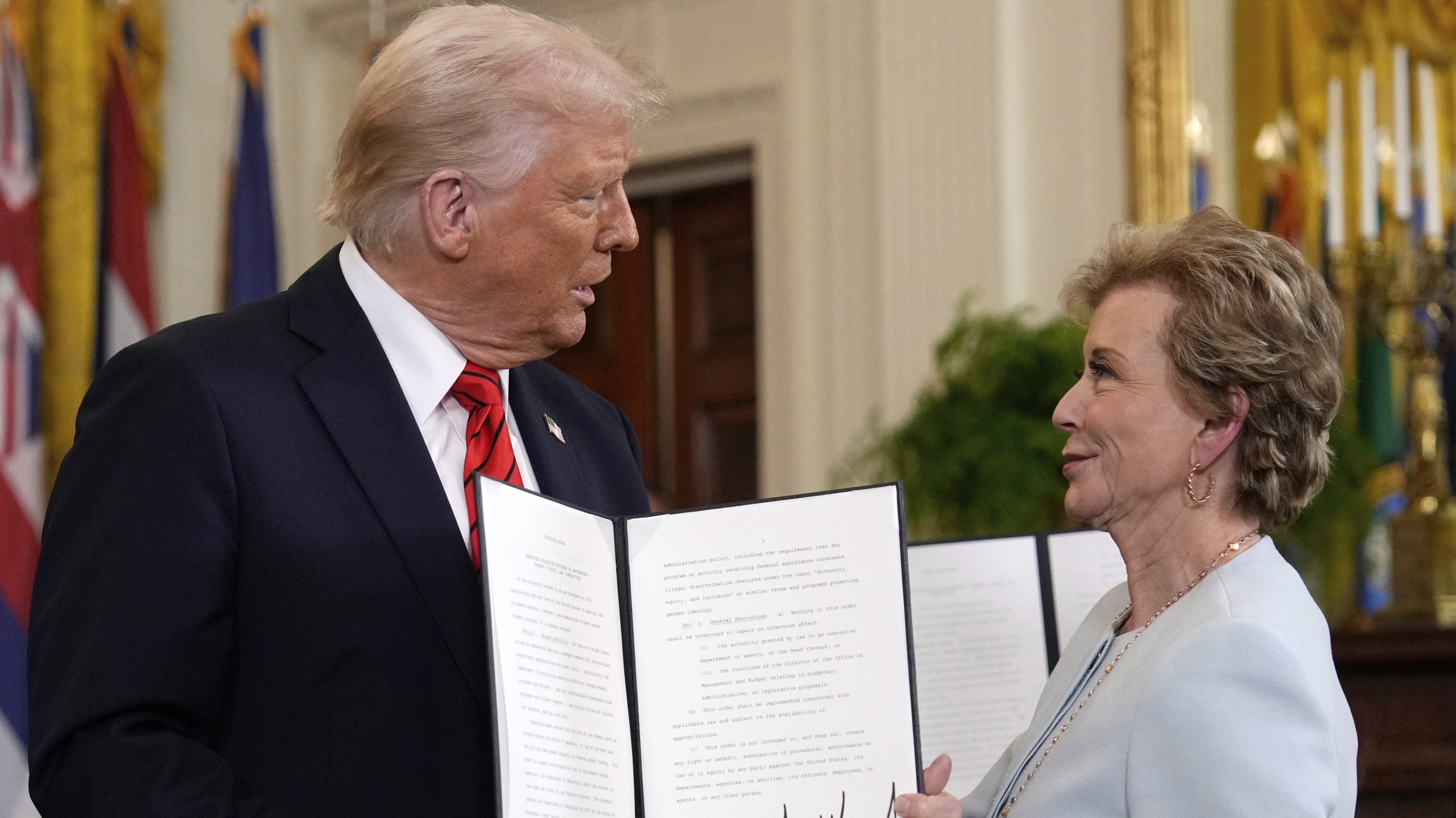Accused UnitedHealthcare CEO killer Luigi Mangione is now facing the possibility of the death penalty in the murder case against him. Federal prosecutors are being directed to seek the death penalty for Mangione by the Trump administration, making the case the first death penalty case for Trump’s second administration. NBC New York’s Chris Glorioso reports.
U.S. Attorney General Pam Bondi said Tuesday that she has directed prosecutors to seek the death penalty against Luigi Mangione, the man accused of gunning down UnitedHealthcare CEO Brian Thompson, following through on the president’s campaign promise to vigorously pursue capital punishment.
It is the first time the Justice Department has sought to bring the death penalty since President Donald Trump returned to office in January with a vow to resume federal executions after they were halted under the previous administration.
“Luigi Mangione’s murder of Brian Thompson — an innocent man and father of two young children — was a premeditated, cold-blooded assassination that shocked America,” Bondi said in a statement. She described Thompson’s killing as “an act of political violence.”
Mangione, a 26-year-old Ivy League graduate, is accused of gunning down Thompson in December outside a Manhattan hotel where UnitedHealthcare was about to hold an investor conference. Thompson, who was 50 and had two children in high school, worked for decades within UnitedHealthcare and its parent company.
Get top local stories in Connecticut delivered to you every morning. Sign up for NBC Connecticut's News Headlines newsletter.
Mangione’s lawyer, Karen Friedman Agnifilo, said Tuesday that in seeking the death penalty “the Justice Department has moved from the dysfunctional to the barbaric.”
Mangione “is caught in a high-stakes game of tug-of-war between state and federal prosecutors, except the trophy is a young man’s life,” Friedman Agnifilo said in a statement, vowing to fight all charges against him.
The killing and ensuing five-day manhunt leading to Mangione's arrest rattled the business community, with some health insurers hastily switching to remote work or online shareholder meetings. It also galvanized health insurance critics — some of whom have rallied around Mangione as a stand-in for frustrations over coverage denials and hefty medical bills.
U.S. & World
Surveillance video showed a masked gunman shooting Thompson from behind. Police say the words “delay,” “deny” and “depose” were scrawled on the ammunition, mimicking a phrase commonly used to describe insurer tactics to avoid paying claims.
Mangione's federal charges include murder through use of a firearm, which carries the possibility of the death penalty. The state charges carry a maximum punishment of life in prison. Mangione has pleaded not guilty to a state indictment and has not yet been required to enter a plea on the federal charges.
Prosecutors have said the two cases will proceed on parallel tracks, with the state case expected to go to trial first. It wasn't immediately clear if Bondi's announcement will change the order.
Mangione was arrested in Altoona, Pennsylvania, about 230 miles west of New York City, after a five-day manhunt.
Police said Mangione had with him a 9mm handgun that matched the one used in the shooting and other items including a fake ID and a notebook described by authorities as a “manifesto” in which they say he expressed hostility toward the health insurance industry and wealthy executives.
Among the entries in the notebook, prosecutors said, was one from August 2024 that said “the target is insurance” because “it checks every box” and one from October that describes an intent to “wack” an insurance company CEO. UnitedHealthcare is the largest health insurer in the U.S., though the company said Mangione was never a client.
Mangione's lawyer has said she would seek to suppress some of the evidence seized during the arrest.
Bondi’s decision to do so in the high-profile case against Mangione, who has drawn a following of supporters upset with the health care industry, underscores the attorney general’s commitment to carrying out the president’s push for new death penalty cases.
Trump oversaw an unprecedented run of executions at the end of his first term and has been an outspoken proponent of expanding capital punishment. Bondi’s order comes weeks after she lifted a moratorium on the federal death penalty that that had been imposed under former President Joe Biden’s administration.
Former President Joe Biden’s Justice Department filed the federal case against Mangione but left it to Trump and his administration to decide whether to seek the death penalty. Because the federal case had been taking a backseat to the state case, federal prosecutors have yet to seek a grand jury indictment, which is required for capital cases.
Trump oversaw an unprecedented run of 13 executions at the end of his first term and has been an outspoken proponent of expanding capital punishment. Trump signed an executive order on his first day back in office on Jan. 20 that compels the Justice Department to seek the death penalty in federal cases where applicable.
Bondi’s order comes weeks after she lifted a Biden-era moratorium on federal executions.
Biden campaigned on a pledge to work toward abolishing federal capital punishment but took no major steps to that end. While Attorney General Merrick Garland halted federal executions in 2021, Biden's Justice Department at the same time fought vigorously to maintain the sentences of death row inmates in many cases.
In his final weeks in office, Biden commuted the sentences of 37 of the 40 people on federal death row, converting their punishments to life in prison.
The three inmates that remain are Dylann Roof, who carried out the 2015 racist slayings of nine Black members of Mother Emanuel AME Church in Charleston, South Carolina; 2013 Boston Marathon bomber Dzhokhar Tsarnaev; and Robert Bowers, who fatally shot 11 congregants at Pittsburgh’s Tree of Life synagogue in 2018, the deadliest antisemitic attack in U.S history.



